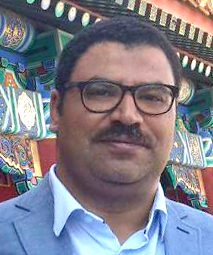More than 20 heads of government and chiefs of international agencies have come together in an extraordinary joint call for a new global settlement to help the world prepare for future pandemics.
In a newspaper article the leaders, including the German chancellor, the United Kingdom prime minister and the French president, said Covid posed the biggest challenge since World War Two. The pandemic has shown “nobody is safe until everyone is safe”, they said.
According to the article, the treaty “would be rooted in the constitution of the World Health Organisation, drawing in other relevant organisations key to this endeavour, in support of the principle of health for all. Existing global health instruments, especially the International Health Regulations, would underpin such a treaty, ensuring a firm and tested foundation on which we can build and improve.
In their article, the leaders stressed that the world will suffer other pandemics and other major health emergencies can be repeated and no single government or multilateral agency can alone address this threat.
“The question is not if, but when. Together, we must be better prepared to predict, prevent, detect, assess and effectively respond to pandemics in a highly co-ordinated fashion. The Covid-19 pandemic has been a stark and painful reminder that nobody is safe until everyone is safe,” the leaders said.
The article came in the wake of disagreement between the UK and the EU over vaccines after the bloc had introduced tougher export controls on jabs produced there.
It also came at the same time some developing countries are seeking a temporary pandemic waiver to global rules protecting the technology and recipes for Covid vaccines so that they can obtain the right to manufacture more vaccine doses.
However, wealthier countries including the UK, the US and the EU have repeatedly blocked a waiver.
The letter also came at the same time as countries and trade blocs continue to clash over vaccine supply, in which some of those who signed the letter have been involved.
According to the WHO chief, the main goal of this treaty would be to foster an all-of-government and all-of-society approach, strengthening national, regional and global capacities and resilience to future pandemics. It would also include recognition of a “One Health” approach that connects the health of humans, animals and our planet. And such a treaty should lead to more mutual accountability and shared responsibility, transparency and co-operation within the international system and with its rules and norms.
However, the absence of world powers, such as the US, China and Russia casts a shadow over the fate of such a proposal. The WHO chief said that he will work with Heads of State and Government globally and all stakeholders, including civil society and the private sector.
“We are convinced that it is our responsibility, as leaders of nations and international institutions, to ensure that the world learns the lessons of the Covid-19 pandemic, the leaders said in their letter.
Since its emergence, coronavirus has posed an unprecedented challenge to values of world unity and solidarity. Such values were damaged by conflicts over facemasks, ventilators and test kits at the beginning of the pandemic; and after nearly two years, values of world solidarity were aborted again after failing to provide equitable vaccine access and delivery for low and middle-income countries.
This lack of solidarity may be seen as more dangerous than seeing the world taken hostage by coronavirus. Hence, there was no wonder to find such a call that may bring to mind similar treaties that were reached in the wake of World War Two to build cross-border co-operation.
After failing the first test of the coronavirus crisis, the world should at least be ready for the long-term test to its ability to build resilience to future crises. To that end, nations should work together towards a revival of the world unity and solidarity.






Discussion about this post